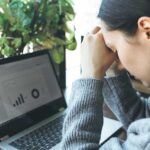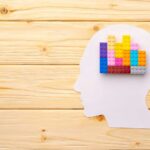You have probably seen many mental health conversations occurring on social media. As people become more comfortable with sharing things about themselves on social media, the amount of opportunities there are to discuss mental health increase. People now use social media platforms like TikTok to open up about their mental health diagnoses and struggles. On a positive note, these conversations pave the way for awareness and acceptance, and this allows more people to reach out for help. Along with it, the stigma around these disorders is slowly diffusing. As our society continues to normalise mental diagnoses, more people are discovering their symptoms and are encouraged to seek support. On the other hand, these trends have led many teens and young adults to self-diagnose based on unregulated information.
The Dangers of Self-Diagnosis Through Social Media
Self-Diagnosis Leads to Misdiagnosis
Unlike physical diseases, which are easier to diagnose with symptoms, mental disorders are more challenging to identify. Many conditions share similar symptoms and have very minimal differences. Most people would probably assume that their illness is depression or another trending psychological disorder, but these titles are not always accurate. If you base your diagnosis on someone else’s symptoms on social media, you’re likely to misdiagnose your condition. And the wrong diagnosis will only delay your receival of the proper treatment.
Receiving the Wrong Treatment
Misdiagnosis is often followed by incorrect treatment and interventions down the line. For example, a person with undiagnosed ADD (Attention Deficit Disorder) will also show the same symptoms as someone suffering from depression. Even with similar symptoms, the treatment procedures for both differ substantially. The danger is that wrong treatments can not only worsen the condition but create new ones. It also doesn’t help that many online forums would recommend medication right away. Medication should only be part of the program, not the complete cure. Treatment should primarily involve therapies and counselling.
Why a Professional Mental Health Assessment is Important
Receiving a Timely Diagnosis
The biggest advantage you’ll get from seeing a licensed professional is a timely diagnosis. A professional can conduct an appropriate series of tests and counselling sessions before you find yourself in a much worse condition. They can also directly communicate with you and accurately analyse the stage of your illness, helping you get the correct treatment right away.
Getting the Right Therapies
The appropriate therapy is the answer to dealing with the root cause of your mental illness. Once you get better, there’s a chance that you will relapse. Only anti-relapse therapies can help you completely recover from your disorder or manage it.
This is why self-diagnosis is highly frowned upon by professionals. You will be impeding the process of receiving the right kinds of medication therapies, and counselling sessions that can help you get better.
Is There a Healthy Way to Deal With Mental Health Content on Social Media?
Mental health on social media can be healthy! Just as long as you approach it the right way. First, take everything you hear with a grain of salt. Remember, not everyone who has something to say about mental health has a licence to do so officially.
Seeing someone open up about their mental health can feel validating, especially if they experience the same struggles as you. Normalising these experiences strips away the shame and stigma we used to associate with mental illness. As a result, more people who are secretly suffering are encouraged to admit they need help. The danger comes when we take these symptoms as a complete reflection of our health.
You should therefore approach these discussions with curiosity. Seek information from valid and reputable resources. If you search online, credible websites usually end with “.gov”, “.edu”, and “.org”. These websites come from the government, medical schools or non-profit organisations and are authored by licensed and professional peers. From here, you can identify your symptoms and use this to start a conversation with a professional.
You’re Not Alone
Be mindful of where you get your information while learning about your mental health. Social media is a great source of support and awareness, but the information is not regulated and not always suitable for you. If you need help, you can trust your GP or a mental healthcare professional to help you get the proper care you need. You can also reach out to the following:
- Kids Help Line – Call 1800 55 1800
- Mensline Australia – Call 1300 789 978
- Lifeline Australia – Call 13 11 14
It’s great that you have the initiative to get better. But you don’t have to fight this battle alone. A healthcare professional will have the appropriate tools and resources to lead you down the right path to healing. So reach out today and take steps towards improved mental health!














